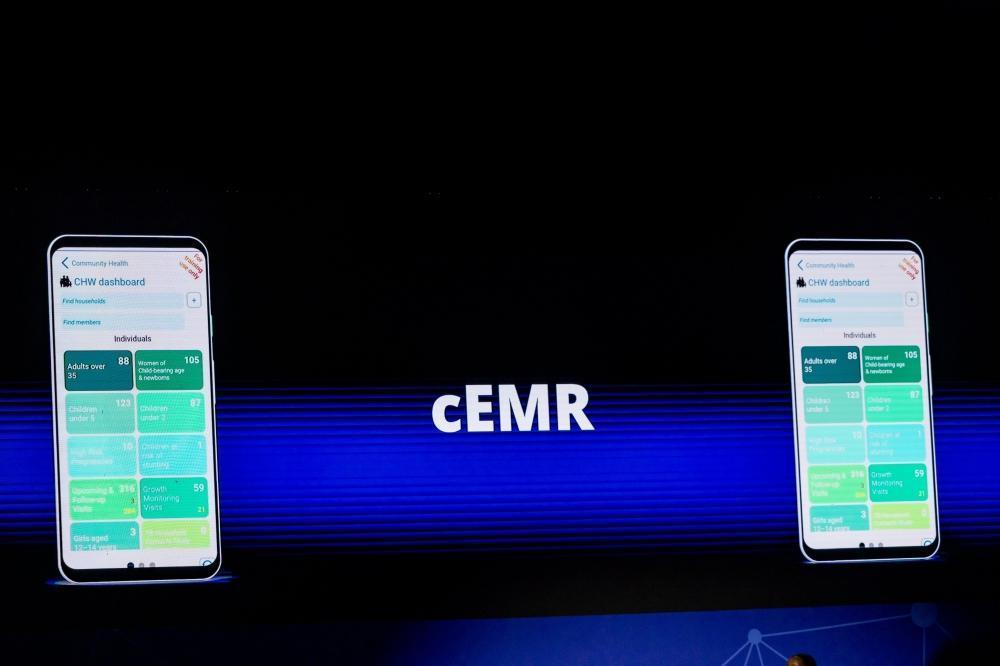Africa-Press – Rwanda. The Ministry of Health has officially launched e-Banguka and e-Buzima, two AI-powered digital applications designed to strengthen Rwanda’s connected health ecosystem and improve healthcare service delivery across the country.
The apps were unveiled on October 13 during the Africa HealthTech Summit at Kigali Convention Centre.
e-Buzima is a digital health platform developed by the Ministry of Health to digitize medical records and improve access to healthcare services. Its primary goal is to eliminate paper-based medical records across all public health facilities.
The platform synchronises patient data across health facilities, allowing doctors and patients to access medical information in real time, reducing waiting times, and improving treatment accuracy.
State Minister for Health Yvan Butera delivers his remarks during the Africa HealthTech Summit at Kigali Convention Centre.
e-Banguka, on the other hand, is designed to enhance emergency medical response system. The platform allows real-time ambulance tracking and identifies the nearest available ambulance.
“These are mobile applications that will help citizens access health services more quickly, while also creating a system that allows seamless information sharing between community health workers, health centres, hospitals, pharmacies, and patients,” said Dr Yvan Butera, Minister of State for Health.
Butera explained that the system eliminates the need for patients to repeat their medical information when referred from one facility to another.
“This innovation will greatly enhance health monitoring and disease management across the country,” he said.
The platforms also allow patients to consult doctors remotely. “We have created an online platform where anyone seeking reliable health information can contact a doctor via phone and receive professional advice,” he added.
He noted that the apps improve service delivery, save time, and ensure secure, well-managed patient data, supporting evidence-based planning at the Ministry of Health.
“In the past, doctors relied heavily on paper files, spending a lot of time writing and rewriting patient information each time a person moved between health facilities. This consumed a lot of time and resources.”
The digital system also reduces patient costs by eliminating the need for multiple paper documents.
Homegrown solutions
Regarding data protection and privacy, Butera emphasised that the system complies with national laws and cybersecurity regulations.
“The advantage is that all this data is stored within Rwanda and managed through systems that were developed locally,” he said.
The new digital apps were developed through collaboration between the Ministry of Health and its partners.
Ozonnia Ojielo, United Nations Resident Coordinator in Rwanda, said, “Digital health success is fundamentally a partnership, requiring collaboration across government, UN, the private sector, and entrepreneurs to fully digitise Rwanda’s health system. This is where the United Nations system in Rwanda steps in, acting as a multiplier.”
He noted UN’s work with the Ministry of Health to create an interoperable digital health system, enabling seamless communication between platforms and supporting efficient, comprehensive patient care.
“We have worked to connect local tech developers and entrepreneurs with global best practices and open-source solutions. This ensures that the digital tools adopted are robust, cost-effective, and tailored to Rwanda’s context, while securing patient data privacy and ethical use,” he added.
For More News And Analysis About Rwanda Follow Africa-Press








